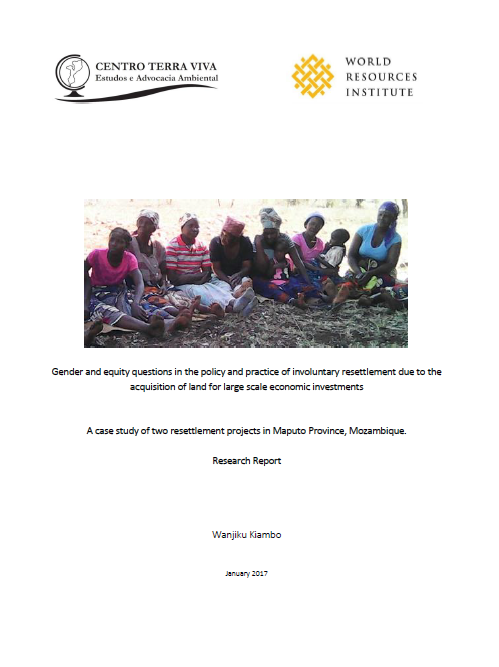Resource information
The NGO Centro Terra Viva (CTV) with funding from the World Resources Institute (WRI) implemented a project seeking to promote gender mainstreaming in the policies and practice of large scale land acquisitions (LSLAs) for economic investments. The study was centered on recognizing opportunities to strengthen the role and involvement of women as actors in decision-making in the resettlement process, particularly given the context of a growing economic and commercial appetite for land acquisition.
This report builds upon work done in 2015 by CTV and WRI on women and land use rights in Mozambique. The 2015 study, Gender equity and community participation in the process of decision-making in the attribution of DUAT, examined the degree to which women are involved in community consultations related to the acquisition (by someone external to the community) of land belonging to a community as well as land use rights. It found that though the constitution of Mozambique apportions equal rights to men and women concerning land use and occupation rights, many in communities remain ignorant of this fact. For this reason women in particular bear the brunt of inequality or exclusion where land rights (and attendant benefits) are concerned. The procedures around community consultations were found to lack preparation of the community, particularly women. The communities had not been prepared for the consultations with regard to what a consultation is: the objectives, procedures and expectations of the community consultation process. Traditional practices ensured that men were the main group to freely offer their opinions during public meetings and community consultations. Preparation of both men and women prior to the consultation would ensure that the community was informed of their rights and able to negotiate a better future.


